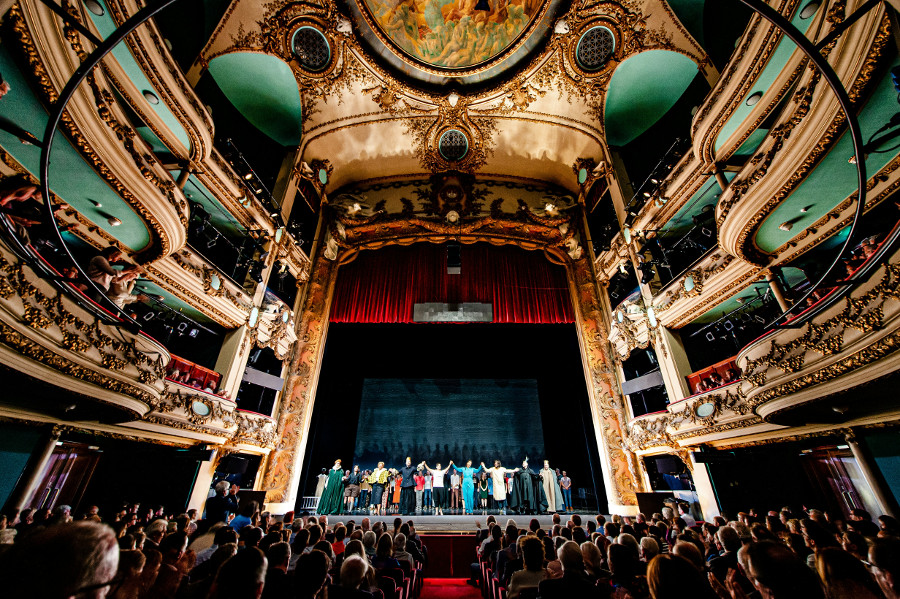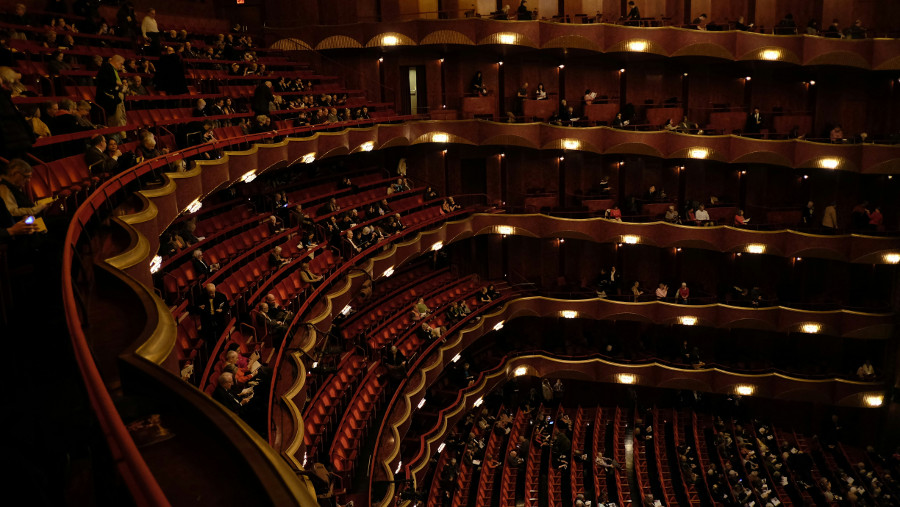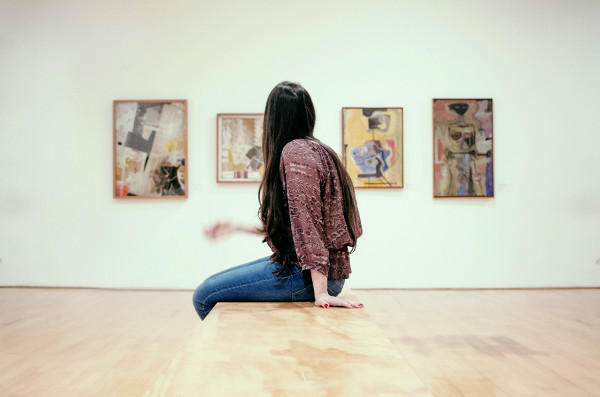From Applause to Silence: Theatre Etiquette for Beginners
Going to the theatre is an experience like no other. There’s something uniquely special about watching a live performance unfold before your eyes, the actors giving their all, the energy of the audience humming in the air. But it’s not just about the performance itself - it’s about how you, as an audience member, contribute to the atmosphere. If you’ve ever found yourself distracted by noisy chatter or a flashing phone screen during a show, then you know how easily things can go wrong. Theatre etiquette is essential to ensure everyone can enjoy the show, from the performers to the person sitting next to you. But what exactly does it mean to be a respectful audience member? Let’s break it down.

The world around us is more connected than ever, but we still spend so much of our time alone in front of screens, disconnected from the world around us. The theatre provides a rare opportunity to be present, to engage in something live and real. It’s a place where we connect not only with the performance but also with others. A place where, for a few hours, we can escape from the noise of our daily lives and immerse ourselves in something meaningful. But for that to happen, everyone in the audience needs to respect the space, the performers, and each other.
Why Theatre Etiquette Matters
Theatre is a unique experience because it’s live. Unlike movies or TV shows, a live performance has that unspoken energy that makes it so special. Every laugh, gasp, and clap from the audience is felt by the performers, feeding their energy and helping to create a moment in time that will never happen again. But all of this depends on the respect we show for one another.
When you attend the theatre, you're not just there to watch a show; you're there to take part in something bigger. If you’ve ever been in a performance where someone’s phone went off or someone was talking throughout the show, you’ll know how quickly that can ruin the magic. It’s not just about the actors on stage - it's about everyone working together to make the experience what it should be.
General Theatre Etiquette Guidelines
Arrive Early, Stay Until the End
The first rule of theatre etiquette is simple: be on time. Arriving late not only disturbs the performers, but it also distracts everyone around you. The theatre is about being present, so make sure you give yourself enough time to find your seat and settle in before the curtain rises. And once you’re there, stay for the whole show. Leaving early is disruptive and shows a lack of respect for the effort that has gone into creating the performance. This is a shared experience, and it deserves to be seen through to the end.
Silent Mode
This one is easy, but it’s also the most commonly ignored rule. Your phone is your lifeline in everyday life, but when you're at the theatre, it needs to be off or, at the very least, on silent. The last thing anyone wants is to hear a phone ring in the middle of a climactic scene. Don’t just mute your phone - turn it off completely. A buzzing phone, a lit-up screen, or a sneaky text is distracting for everyone around you, not to mention the actors. It’s a simple gesture, but it’s essential to preserving the experience.
No Flash Photography
Sure, you might want a snapshot to remember the performance, but flash photography is a no-go. Not only is it distracting for the actors, but it can also damage the lighting design. Plus, no one wants to be the person who ruins a special moment by flashing a camera in the middle of an emotional scene. If you want to take a picture, do it before or after the show, not during it.
Avoid Talking During the Performance
Theatre is all about immersion. If you're talking during a performance, you're not only missing out on the experience but also ruining it for those around you. A whispered comment here or there might seem harmless, but it can disrupt the rhythm of the show, pulling both you and others out of the moment. Keep your conversation for after the show. If you absolutely need to talk, do it quietly and during breaks like intermission. And if you find yourself needing to leave during the performance, do so discreetly and with as little disruption as possible.

Audience Behavior During the Show
When to Applaud
Applause is how we show our appreciation, but timing is everything. While it might be tempting to clap at the end of every scene or song, remember that sometimes silence is part of the performance. Applauding too early can break the tension of a moment, while waiting for the right cue lets you show your respect at just the right time. Applaud at the end of acts, after standout performances, and always at the curtain call.
Audience Reactions
Theatre is meant to provoke reactions - laughter, surprise, tears. But be mindful of the volume of your reactions. Laughter is great, but if it's too loud, it can detract from the mood. Similarly, gasping or crying is natural, but remember to stay controlled. Your emotional response is part of the collective experience, so be aware of how it might affect those around you.
Physical Movement
When you're in the theatre, try to stay as still as possible. Constant shifting in your seat, rustling with snacks, or getting up to leave can distract others. If you need to go to the bathroom, do so during intermission, not in the middle of a scene. And if you must leave early, try to wait until a break in the action. Everyone around you will thank you for it.
Post-Performance Etiquette
Respectful Applause
At the end of the show, everyone is eager to express their appreciation. Applaud loudly and heartily, but always wait for the performers to return for their curtain call. It's a moment to show your respect for all their hard work, and it’s a great way to cap off the experience.
Leaving the Theatre
Once the performance is over and the final bows are taken, it’s time to head out. But don’t rush - wait for the crowd to ease up before heading for the door. This ensures that everyone gets to leave without feeling rushed or crowded. Take a moment to reflect on the show or chat with fellow attendees in the lobby. And if you’re talking, keep it at a reasonable volume so everyone can continue to enjoy the atmosphere.

Special Considerations
For Children and Families
Taking kids to the theatre can be a wonderful experience, but it's important to manage expectations. Teach children the importance of silence during the show and encourage them to pay attention to what’s happening on stage. If they get restless, it’s better to take them out of the theatre for a break than to let them disrupt the performance.
For Older or Disabled Audience Members
Be considerate of those who may need extra assistance, whether it's helping them find their seat or making space for them in the aisles. Accessible seating is designed to ensure everyone can enjoy the performance, so be mindful of these spaces and help others when needed.
Cultural Sensitivity
Some performances require a bit more cultural sensitivity, especially if they involve traditions or customs from specific parts of the world. Do your research beforehand and be aware of any special expectations. Being respectful of the culture and context behind a performance shows thoughtfulness and enhances the overall experience.
The Impact of Respectful Audience Behavior
When everyone follows the etiquette, the experience becomes richer for all involved. Performers feed off the audience’s energy, and an audience that is respectful allows everyone to stay engaged, from start to finish. Theatre is a shared experience, and when we all do our part, we make it better for each other. It’s more than just good manners - it’s about creating a space where everyone, from the performers to the audience, can enjoy the magic of live theatre.
Some places where you can buy tickets:
Conclusion
Theatre etiquette is all about creating a positive environment for both the performers and the audience. By being mindful of your actions - from applauding at the right time to keeping your phone off - you help ensure that the experience is as enjoyable as it should be. Next time you step into the theatre, remember: the magic happens when everyone works together to respect the space, the performers, and each other. Let’s keep the experience as unforgettable as the show itself.



